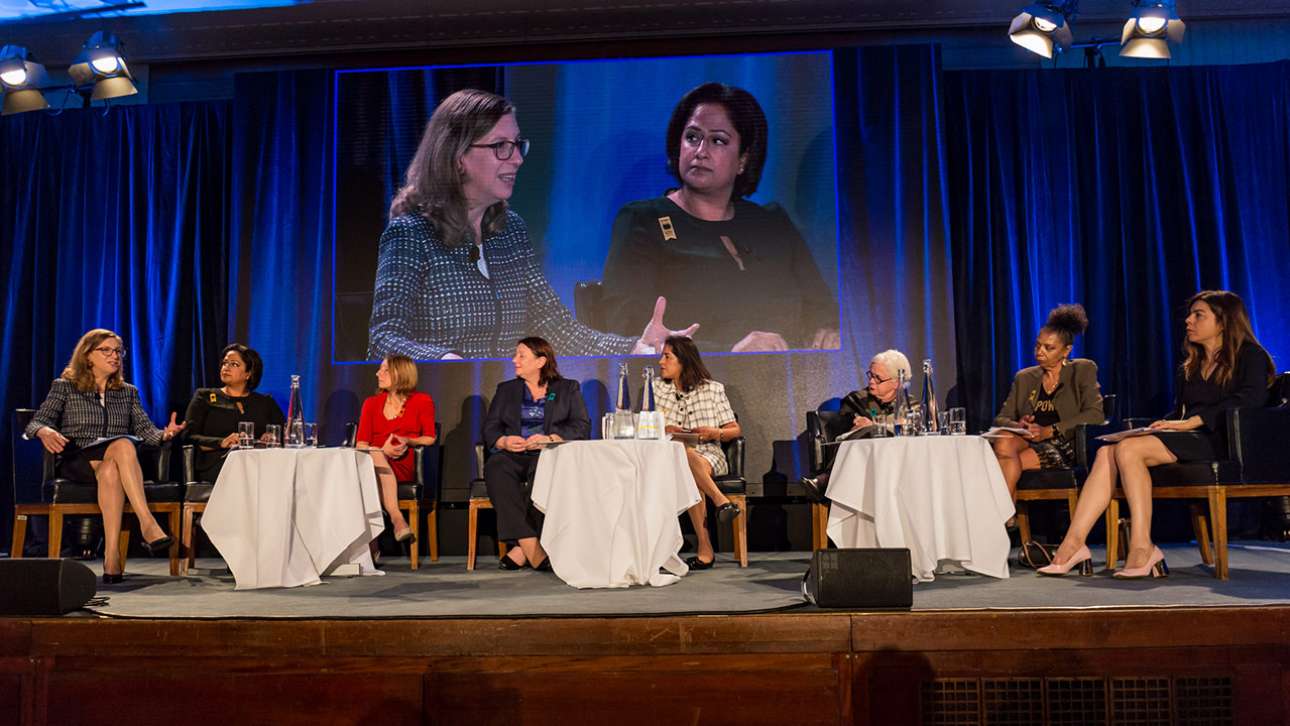Keynote conversation on gender equality launched in London
Keynote conversation on gender equality launched in London!
This worldwide conversation forms part of the University of London’s Leading Women campaign, the keynote lecture was delivered by Shauna Olney.

‘Globally, progress for women at work has stalled, and there are signs that it may even be reversing. Despite common assumptions, the gender gaps in the world of work remain stubborn, and show no sign of being overcome,’ said Shauna Olney, Chief of the Gender, Equality and Diversity Branch of the International Labour Organization (ILO), a specialised agency of the United Nations.
‘Women continue to have fewer jobs than men; they work in a more limited range of jobs – often reflecting gender stereotypes; their jobs tend to be lower paid with poor working conditions; and they have limited scope for voice and representation, ’explained Shauna Olney. Noting that women’s educational achievements have been impressive, she examined to what extent educated women were getting the jobs and the pay they deserve. She was speaking at the launch of the University of London’s ‘worldwide conversation’, which took place at Senate House in London on Wednesday 19 September 2018.
This worldwide conversation forms part of the University of London’s Leading Women campaign, which celebrates 150 years since the University opened up Special examinations for Women in 1868, and ten years later, opened up full degrees for women. In both instances, the University of London was the first to do so in the UK.
In referring to research conducted by the ILO, for its centenary celebrations next year, Shauna noted that, the majority of women, in all regions, want to work at paid jobs, yet there remains a significant gap between women’s aspirations and labour market realities. Employment for women stands at 1.3 billion, compared to 2 billion for men, and the global employment gender gap has closed by only 0.6% in 20 years. Progress has stagnated and there are indications that the situation is getting worse.
Shauna attributed this trend, in part, to the lack of value given to care work responsibilities, generally associated with women, as well as the time poverty of women, who perform over 75% of unpaid care work She noted that, in 2018, over 600 million women, compared to about 40 million men, were either unavailable for employment or not seeking a job, due to unpaid care work responsibilities. People, mainly women, spend 16.4 billion hours per day doing care work; this is equivalent to 2 billion people working 8 hours a day for no remuneration, and is equivalent to 9% of global GDP.
